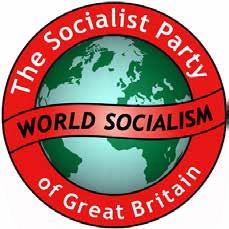Editorial: How real is democracy today?
A common boast made by capitalism’s supporters is that free market capitalism is inherently democratic and that rights, such as the right to vote, freedom of speech, freedom of assembly, necessarily go hand in hand with the freedom of the capitalists to invest and make profits. During the Cold War, Western workers were always reminded that whatever grievances they had about life under capitalism, they were lucky to have the vote and have their say, not like in the USSR and the other ‘Socialist’ countries. The words ‘democracy’ and ‘democratic’ are a necessary part of any aspiring capitalist politician’s lexicon.
This prominence given to democracy masks the reality of workers’ lives under capitalism.
Workers, who have no independent means of living, have to sell their physical and mental energies to an employer in order to acquire the necessities of life. The employers (or capitalists) who own the means of production and distribution will only employ workers if they have a prospect of making a profit. If not, workers can face periods of unemployment and even destitution. When capitalists do hire workers they will attempt to extract the most value from the use of their labour power that they can get away with and keep their wage costs to a minimum. On the other hand, it is in the interests of the workers to obtain the highest wages they can. In their efforts to achieve this, workers have combined in trade unions and at times have withdrawn their labour to put pressure on the employers. It is the outcome of these struggles that determine the conditions of workers’ lives. Although both the capitalists and the workers enjoy the same democratic rights, they do not have the same social power. Clearly, the capitalists, more often than not, are in a stronger position.
However, we must not read into this, as many on the Left do, that capitalist political democracy is a sham and that workers should have nothing to do with it. It needs to be pointed out that the workers were not handed their democratic rights on a plate, they had to struggle for them through their own organisations, such as the Chartist movement in nineteenth-century Britain.
The freedom of assembly enables the workers to organise politically in their own interests and is invaluable in aiding the development of working-class political consciousness. The right to vote means that workers have the power to choose who will control the capitalist state machine. Up to now, they have used their votes to elect capitalist representatives in the mistaken belief that those representatives can run the capitalist system for the workers’ benefit. They are invariably disappointed and in many instances this has led to political disillusionment and cynicism.
We urge workers to find out about the socialist case, which is that capitalism cannot work in their interests and that socialism is the only solution to the problems capitalism creates.
With this in mind, workers can then elect their own delegates with a mandate to abolish the private and state ownership of the means of living and replace it with democratic common ownership.
Introducing the Socialist Party 
The Socialist Party advocates a society where production is freed from the artificial constraints of profit and organised for the benefit of all on the basis of material abundance. It does not have policies to ameliorate aspects of the existing social system. It is opposed to all war.
The Socialist Standard is the combative monthly journal of the Socialist Party, published without interruption since 1904. In the 1930s the Socialist Standard explained why capitalism would not collapse of its own accord, in response to widespread claims to the contrary, and continues to hold this view in face of the notion’s recent popularity.
Beveridge’s welfare measures of the 1940s were viewed as a reorganisation of poverty and a necessary ‘expense’ of production, and Keynesian policies designed to overcome slumps an illusion.
Today, the journal exposes as false the view that banks create money out of thin air, and explains why actions to prevent the depredation of the natural world can have limited effect and run counter to the nature of capitalism itself.
Gradualist reformers like the Labour Party believed that capitalism could be transformed through a series of social measures, but have merely become routine managers of the system.
The Bolsheviks had to be content with developing Russian capitalism under a one-party dictatorship. Both failures have given socialism a quite different — and unattractive — meaning: state ownership and control.
As the Socialist Standard pointed out before both courses were followed, the results would more properly be called state capitalism.
The Socialist Party and the World Socialist Movement affirm that capitalism is incapable of meaningful change in the interests of the majority; that the basis of exploitation is the wages/money system.
The Socialist Standard is proud to have kept alive the original idea of what socialism is — a classless, stateless, wageless, moneyless society or, defined positively, a democracy in which free and equal men and women co-operate to produce the things they need to live and enjoy life, to which they have free access in accordance with the principle, ‘from each according to their abilities, to each according to their needs.’
Socialist Standard September 2020

